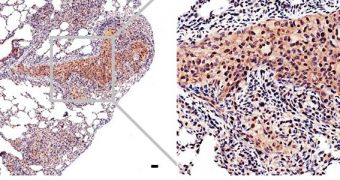A team of investigators based at the Cold Spring Harbor Laboratory (CSHL), in the United States, announces the development of a new method for producing fast, reliable and accurate mouse models for investigating prostate cancer. This is the second-deadliest cancer, and affects 15 percent of men.
One of the most significant problems hampering progress in prostate cancer research is the fact existing mouse models for this condition fail to mimic some of the most lethal aspects of the disease. Plus, the tiny rodents take a long time to breed and develop, and can be very costly.
The new CSHL approach relies on delivering gene mutations directly into the prostates of mice in the new model, called RapidCap. This solves one of the main issues with existing models, namely the fact that most mice do not develop metastatic cancer, like humans do.
Details of the new study appear in the latest issue of the American Association for Cancer Research's (AACR) journal Cancer Discovery. The work was led by CSHL investigator and associate professor Lloyd Trotman, who worked together with colleagues at the Weill Cornell Medical College, Mt. Sinai School of Medicine and the Dana-Farber Cancer Institute for these results.

 14 DAY TRIAL //
14 DAY TRIAL //